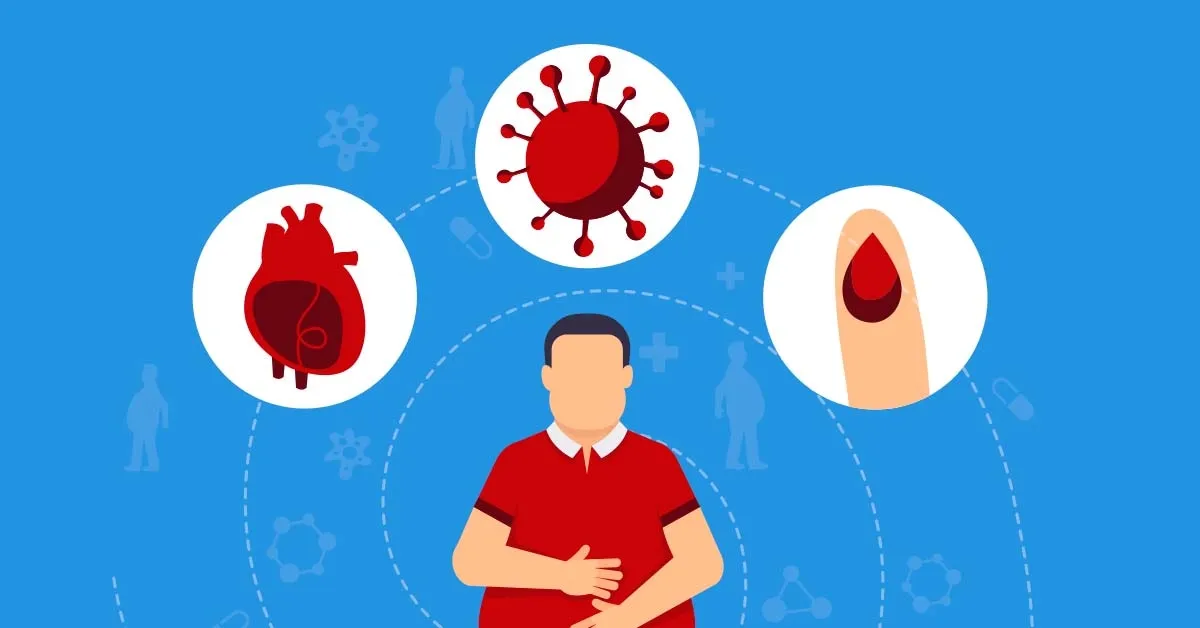A new study developed by researchers from the CEDARS-SINAI SMIDT Institute, in the United States, has confirmed that people who have infected with the virus have a higher risk of new appearance diabetes, the factor that contributes the mostcardiovascular diseases, as published in the journal 'Jama Network Open'.
"Our results verify that the risk of developing type 2 diabetes after a COVID-19 infection was not only an early observation but, in fact, a real risk that, unfortunately, has persisted during the omicron era," says the doctorAlan Kwan, first author of the study and cardiovascular doctor of the CEDARS-SINAI SMIDT HEART INSTITUTE.
According to Kwan, this trend is worrying because most Americans will end up contracting a Covid-19 infection."This research study helps us understand and prepare better for the era of cardiovascular risk after Covid-19 infection," says Kwan.
Type 2 diabetes and not vaccinated people of COVID
The results also suggest that the risk of type 2 diabetes seems less in people who were already vaccinated against COVID-19 at the time they were infected.
To determine the increase in diabetes rates, the researchers evaluated medical records of 23,709 adult patients who had at least one infection documented by COVID-19 and were treated in the Cedars-Sinai health system in Los Angeles between 2020 and 2022.The average patient was 47 years old, and 54% of the subjects were women.
Within the temporary framework of the study they discovered that the combined risk of type 2 diabetes after exposure to COVID-19 (taking into account both vaccinated patients and not vaccinated) was 2.1%, and 70% occurred after COVID-19 infection compared to 30% that occurred before exposure to virus.
In addition, the risk of type 2 diabetes after exposure to COVID-19 for unpacted patients was 2.7%, with 74% after COVID-19 infection compared to 26% before theExposure to COVID-19.The risk of type 2 diabetes after exposure to COVID-19 in vaccinated patients was 1.0%, with 51% after COVID-19 infection for 49% before exposure to COVID-19.
"These results suggest that vaccination with COVID-19 before infection can provide a protective effect on the risk of diabetes," explains Kwan.Against COVID-19 remains an important tool in protection against virus and the still uncertain risks that people can experience during the period after infection. "
Susan Cheng, main author of the study, Professor of Cardiology and Director of Cardiovascular Population in the Smidt Heart Institute, affirms that these findings expand medical knowledge about the effects of COVID-19 on the body and, at the same time, at the same time,They reveal issues still unanswered.
"Although we still do not know with certainty, the trends and patterns that we observe in the data suggest that COVID-19 infection could be acting in certain contexts such as an accelerator of the disease, amplifying the risk of a diagnosis that, otherwise, individuals could have received later in their life, "says Cheng, head of the Erika J. Glazer of Cardiovascular Health of Women and Population Sciences.
"Thus, it could be that instead of being diagnosed with diabetes at age 65, a person with pre-existing diabetes risk could-after an infection by COVID-19-have moreProbabilities of developing diabetes at 45 or 55, "he adds.
Diabetes alters normal metabolism and metabolic processes, preventing the pancreas from producing sufficient insulin, a hormone that helps regulate blood levels of glucose and amino acids.Since diabetes can damage vital organs and blood vessels, diabetic people run greater risk of myocardial infarctions and strokes.
This research, says Kwan, is a piece of the puzzle that will help researchers understand how to prevent in the future the risk of metabolic and cardiovascular diseases.
"As we learn to live with COVID-19, we also have to be prepared to recognize and treat the various conditions related to their sequelae," says Kwan. "Our ultimate goal is to find ways to keep healthy people and capable of dedicating themselves to dedicating themselves toto their daily activities and lives. "





